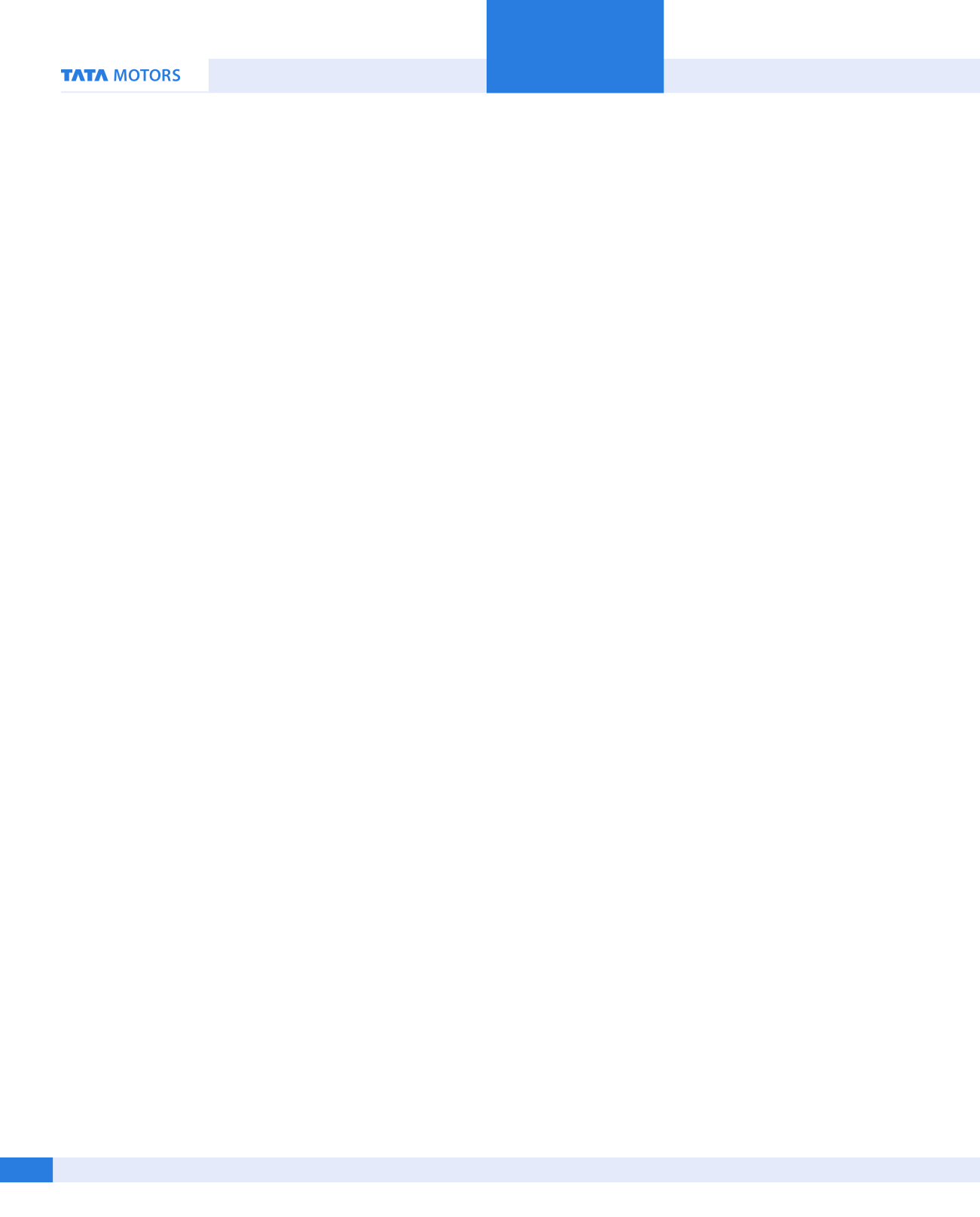

Corporate Overview
Financial Statements
Statutory Reports
122
72nd Annual Report 2016-17
competition within the industry. As a provider of numerous
high-volume models, the Company’s profitability and cash flows
are significantly affected by the risk of rising competitive price
pressures. Special sales incentives and increased price pressures
in the new car business also influence price levels in the used car
market, with a negative effect on vehicle resale values. This may
have a negative impact on the profitability of the used car business
in the Company’s dealer organization.
There can be no assurance that the Company’s new models will
meet its sales expectations, in which case the Company may
be unable to realize the intended economic benefits of the
Company’s investments, which would in turn materially affect the
Company’s business, results of operations and financial condition.
In addition, there is a risk that the Company’s quality standards can
be maintained only by incurring substantial costs for monitoring
and quality assurance. For the Company’s customers, one of the
determining factors in purchasing its vehicles is the high quality of
the products.
A decrease in the quality of the Company’s vehicles (or if the public
were to have the impression that such a decrease in quality had
occurred) could damage the Company’s image and reputation as a
premium automobile manufacturer and in turn materially affect the
Company’s business, results of operations and financial condition.
In addition, product development cycles can be lengthy, and there
is no assurance that new designs will lead to revenues from vehicle
sales, or that the Company will be able to accurately forecast demand
for its vehicles, potentially leading to inefficient use of the Company’s
production capacity. Additionally, the Company’s high proportion of
fixed costs, due to the Company’s significant investment in property,
plant and equipment, further exacerbates the risks associated with
incorrectly assessing demand for its vehicles.
The Company is subject to risks associated with product
liability warranties and recalls.
The Company is subjected to risks and costs associated with product
liability, warranties and recalls in connection with performance,
compliance or safety-related issues affecting the Company’s
products which may, in turn, cause the Company’s customers to
question the safety or reliability of its vehicles and thus result in a
materially adverse effect on its business, impacting its reputation,
results from operations and financial condition. Such events could
also require the Company to expend considerable resources to
remediate, and the Company may be subject to class actions, other
large-scale product liability, or other lawsuits in various jurisdictions
where the Company conducts business. In May 2016, an industry-
wide passenger airbag safety recall was announced in the United
States by the National Highway Traffic System Administration or
NHTSA, in respect of airbags from Takata Corporation or Takata,
a supplier of airbags. Certain front-passenger airbags supplied by
Takata were installed in vehicles sold by Jaguar Land Rover. The
Company considered the cost associated with the recall to be an
adjusting post-balance sheet event and recognized an additional
provision of GB£ 67.4 million for the estimated cost of repairs in its
income statement for Fiscal 2016. The Company expects to utilize
such provision over the next one to four years.
Furthermore, the Company may also be subject to class actions
or other large-scale product liability or other lawsuits in various
jurisdictions in which the Company may have a significant presence.
The use of shared components in vehicle production increases this
risk because individual components are deployed in a number of
different models across the Company’s brands. Any costs incurred
or lost sales caused by product liability, warranties and recalls could
materially adversely affect the Company’s business.
Any disruption in the supply of automobile components could
have a material adverse impact on the Company’s results of
operations.
Adverse economic conditions, a decline in automobile demand and
lack of access to sufficient financing arrangements, among others,
could have a negative financial impact on the Company’s suppliers,
thereby impairing timely availability of components to the Company
or causing increase in the costs of components. In addition, if
one or more of the other global automotive manufacturers were
to become insolvent, this would have an adverse effect on the
Company’s supply chains and may have a material adverse effect
on the Company’s results of operations.
The Company’s Jaguar Land Rover has also entered into supply
agreements with Ford and certain other third parties for critical
components and remain reliant upon Ford and the Ford-PSA joint
venture for a portion of Jaguar Land Rover engines. However,
following the launch of the EMC in Wolverhampton, Jaguar Land
Rover now also manufactures its own ‘‘in-house’’ engines. The
Company may not be able to manufacture certain types of engines
or find a suitable replacement supplier in a timely manner in the
event of any disruption in the supply of engines, or parts of engines,
and other hardware or services provided to Jaguar Land Rover by
Ford or the Ford-PSA joint venture and such disruption could have
a material adverse impact on the Company’s operations, business
and/or financial condition.


















